 Paula Rego, one of the most famous living artists has said the recent anti-abortion movement criminalizes women and believes recent legislation banning the procedure in some US states is dangerously regressive and will force women into finding potentially deadly ‘backstreet solutions’.
Paula Rego, one of the most famous living artists has said the recent anti-abortion movement criminalizes women and believes recent legislation banning the procedure in some US states is dangerously regressive and will force women into finding potentially deadly ‘backstreet solutions’.
The painter – who was born in Portugal but lives in London – has spent her career focusing on women’s rights and abortion. ‘It seems unbelievable that these battles have to be fought all over again. It is grotesque’, she stated.
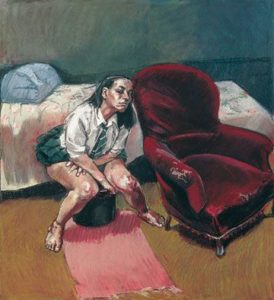 Back in 1998, the now 84-year-old artist created a series of paintings – The Abortion Pastels – in response to a referendum to legalize abortion in Portugal. At that time at least 2 women per year died as a result of secretive and often tortuous illegal abortions. The women who survived the severe bleeding and septicaemia risked 3 years in prison.
Back in 1998, the now 84-year-old artist created a series of paintings – The Abortion Pastels – in response to a referendum to legalize abortion in Portugal. At that time at least 2 women per year died as a result of secretive and often tortuous illegal abortions. The women who survived the severe bleeding and septicaemia risked 3 years in prison.
The referendum was defeated as a result of an intimidating lobby of the ultra-conservative Catholic church and a very low turnout among voters.
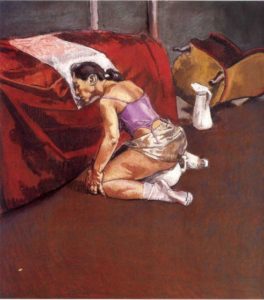 It lasted until 2007 before this mistake was corrected and abortion laws in Portugal were liberalized.
It lasted until 2007 before this mistake was corrected and abortion laws in Portugal were liberalized.
In a provocative interview from that time Rego is very clear about the hypocrisy and horror of the rusty abortion policy in her country. And she is proud that her paintings – highlighting the fear and danger of illegal abortion – were useful as propaganda material in the 2007 referendum. ‘It is imperative women have a choice’, she emphasizes.
Rego’s series depicts a theme uncomfortable in Western art – often only concerned with the idealisation of womanhood. Its cruel realism exposes a very real picture for many – especially poor – women in countries beneath the Equator, where every 9 minutes a woman still dies as a result of an illegal abortion. ‘If you are rich it is easier to have an abortion, usually by travelling to another country. Poor women are butchered.’
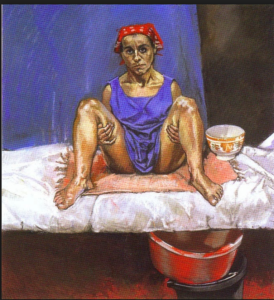 The exhibition Paula Rego: Obedience and Defiance’ will be the first major retrospective of her work since the 1960s. To support the exhibition – that opens on 15 June at MK Gallery in Milton Keynes, UK – the artist has offered a limited edition print from her celebrated series hoping the etching Untitled Abortion, 2000 will help draw attention to the dangers of making abortion illegal again.
The exhibition Paula Rego: Obedience and Defiance’ will be the first major retrospective of her work since the 1960s. To support the exhibition – that opens on 15 June at MK Gallery in Milton Keynes, UK – the artist has offered a limited edition print from her celebrated series hoping the etching Untitled Abortion, 2000 will help draw attention to the dangers of making abortion illegal again.
Bom fim de semana Have a nice weekend (pics Womensart/Sapo)

 The ruling socialist party wants the government to speed up the
The ruling socialist party wants the government to speed up the 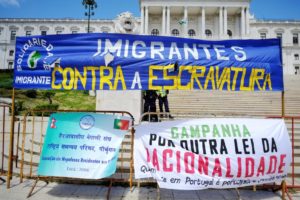 The reason for the amendment was the large-scale demonstration in May, when immigrants gathered before Parliament, expressing that they were treated like second-rank citizens, even though they paid tax and social insurance.
The reason for the amendment was the large-scale demonstration in May, when immigrants gathered before Parliament, expressing that they were treated like second-rank citizens, even though they paid tax and social insurance.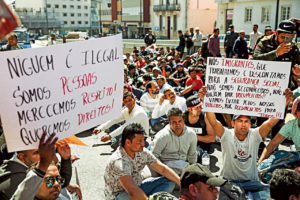 ‘The law doesn’t promote the integration of immigrants, who work here for many years but are not treated as human beings’, says Timóteo Macedo, president of Solidaridade Imigrante (Solim). ‘Our Government argues, that we need more
‘The law doesn’t promote the integration of immigrants, who work here for many years but are not treated as human beings’, says Timóteo Macedo, president of Solidaridade Imigrante (Solim). ‘Our Government argues, that we need more 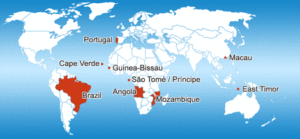 The majority of the ‘new citizens’ originate from Portuguese speaking countries such as Brazil (120.000), Cape Verde (75.000), Guinea–Bissau (35.000), and Angola (35.000). During the same period, a considerable number of Ukrainians (25.000) and Romanians (30.000) settled in the country.
The majority of the ‘new citizens’ originate from Portuguese speaking countries such as Brazil (120.000), Cape Verde (75.000), Guinea–Bissau (35.000), and Angola (35.000). During the same period, a considerable number of Ukrainians (25.000) and Romanians (30.000) settled in the country.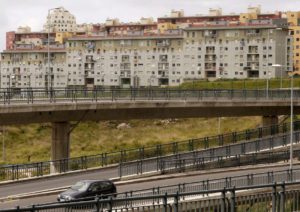
 Timothy Macedo – from the NGO Solidaridade Imigrante (SOLEM) – is happy with the new law, but points out that there are more than 30.000 illegals (the vast majority living in Lisbon) and that most of them are waiting for years to be assessed by the Foreigners and Borders Service (SEF).
Timothy Macedo – from the NGO Solidaridade Imigrante (SOLEM) – is happy with the new law, but points out that there are more than 30.000 illegals (the vast majority living in Lisbon) and that most of them are waiting for years to be assessed by the Foreigners and Borders Service (SEF).